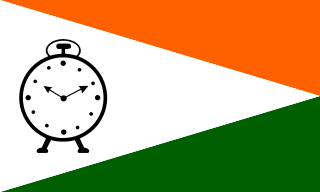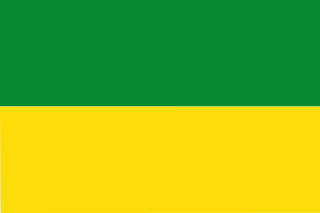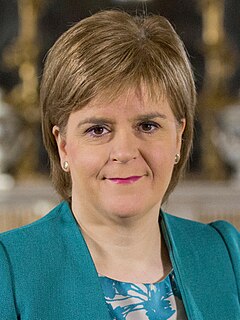| This article is part of a series on |
| Politics of Greece |
|---|
 |
| |
The Independent Party was a political party in Greece in the 1930s.
| This article is part of a series on |
| Politics of Greece |
|---|
 |
| |
The Independent Party was a political party in Greece in the 1930s.
The party first contested national elections in 1933, winning two seats in the Hellenic Parliament with 2% of the vote. [1] The party did not contest any further national elections.

The Nationalist Congress Party is one of the eight national parties in India.

The Communist Party of India (Marxist) is a communist political party in India. It is one of the national parties of India. The party emerged from a split from the Communist Party of India in 1964. The CPI(M) was formed in Calcutta from 31 October to 7 November 1964.

The All India Forward Bloc (AIFB) is a left-wing nationalist political party in India. It emerged as a faction within the Indian National Congress in 1939, led by Subhas Chandra Bose. The party re-established as an independent political party after the independence of India. It has its main stronghold in West Bengal. The party's current Secretary-General is Debabrata Biswas. Veteran Indian politicians Sarat Chandra Bose and Chitta Basu had been the stalwarts of the party in independent India.

The New Patriotic Party (NPP) is a centre-right and liberal-conservative political party in Ghana. Since the democratization of Ghana in 1992, it has been one of the two dominant parties in Ghanaian politics, with its leading rival being the centre-left National Democratic Congress (NDC). John Kufuor of the NPP was President of Ghana from 2001 to 2009. At the elections held on 7 December 2004, the party won 129 out of 230 seats. The NPP candidate was Kufuor, who was re-elected as President with 52.75% of the vote. The New Patriotic Party symbol is the African elephant and the New Patriotic Party colors are red, white, and blue.

The National Democratic Alliance (NDA) is an Indian political alliance made up of predominantly centre-right political parties and led by the Bhartiya Janata Party (BJP). It was founded in 1998 and currently controls the Indian union government as well as the government of 18 Indian states.

The 1998 Australian federal election was held to determine the members of the 39th Parliament of Australia. It was held on 3 October 1998. All 148 seats of the House of Representatives and 40 seats of the 76-seat Senate were up for election. The incumbent centre-right Liberal/National Coalition government led by Prime Minister John Howard of the Liberal Party and coalition partner Tim Fischer of the National Party defeated the centre-left Australian Labor Party opposition led by Opposition Leader Kim Beazley despite losing the two party preferred popular vote.

A general election was held on Sunday, 21 March 2004 for members of the 11th Parliament of Malaysia. Voting took place in all 219 parliamentary constituencies of Malaysia, each electing one Member of Parliament to the Dewan Rakyat, the dominant house of Parliament. This is first election for Abdullah as Prime Minister since appointed for this position in 2003. State elections also took place in 505 state constituencies in 12 out of 13 states of Malaysia on the same day as Sabah took the first time election was parallel with the rest of Peninsular Malaysia.

The Lok Janshakti Party (LJP) is a state political party in the state of Bihar, India. It was led by late Ram Vilas Paswan. The party was formed in 2000 when Paswan split from Janata Dal (United). The party has considerable following amongst Dalits in Bihar. At Present, The party is a member of the National Democratic Alliance. Actor turned politician Chirag Paswan is the party president.

The Desiya Murpokku Dravida Kazhagam is an Indian regional political party in the state of Tamil Nadu. DMDK is a dravidian party founded by Vijayakanth at Madurai on 14 September 2005. The party head office is in Koyambedu, Chennai.

The thirteenth legislative assembly election, of Tamil Nadu was held on 8 May 2006. It was held for all 234 constituencies to elect the government in the state for the following five years. The votes were counted three days later on 11 May 2006 and all the results were out by the end of the day. The Dravida Munnetra Kazhagam-led (DMK) front won the elections, with the DMK emerging as the single-largest party with 96 seats, and its leader, M Karunanidhi was sworn in as Chief Minister for a fifth and final term. This election marked the first time the state saw a hung assembly with no party gaining a majority of its own. As a result, DMK formed a minority government with its allies, which is the first in the state since the 1952 election. 13th Assembly was instituted due to this election.

In Australian politics, the two-party-preferred vote is the result of an election or opinion poll after preferences have been distributed to the highest two candidates, who in some cases can be independents. For the purposes of TPP, the Liberal/National Coalition is usually considered a single party, with Labor being the other major party. Typically the TPP is expressed as the percentages of votes attracted by each of the two major parties, e.g. "Coalition 50%, Labor 50%", where the values include both primary votes and preferences. The TPP is an indicator of how much swing has been attained/is required to change the result, taking into consideration preferences, which may have a significant effect on the result.

General elections were held in Pakistan on 10 October 2002 to elect the National Assembly and four provincial assemblies.

The eleventh legislative assembly election of Tamil Nadu was held on 2 May 1996. The Dravida Munnetra Kazhagam (DMK) led front won the election and its leader M. Karunanidhi, became the chief minister. This was his fourth term in office. S. Balakrishnan, also known as So. Balakrishnan, of Tamil Maanila Congress, became the Leader of the Opposition. The incumbent All India Anna Dravida Munnetra Kazhagam (AIADMK) government was defeated in a landslide with its general secretary and outgoing chief minister J. Jayalalithaa losing the election from the Bargur constituency.

The sixth legislative assembly election of Tamil Nadu was held on 10 June 1977. All India Anna Dravida Munnetra Kazhagam (AIADMK) won the election defeating its rival Dravida Munnetra Kazhagam (DMK). M. G. Ramachandran, the AIADMK founder and a leading Tamil film actor, was sworn in as Chief Minister for the first time. The election was a four-cornered contest between the AIADMK, DMK, the Indian National Congress (INC) and the Janata Party. Earlier in 1972, M.G.R had founded the AIADMK following his expulsion from the DMK after differences arose between him and DMK leader M. Karunanidhi. On 31 January 1976, Karunanidhi's government was dismissed by the central government of Prime Minister Indira Gandhi citing non-co-operation for MISA and President's rule was imposed on the state. Karunanidhi had been at odds with Indira Gandhi over his opposition to Emergency and allied with Janata Party founded by Jayaprakash Narayan. Meanwhile, M.G.R had developed a close relationship with Indira Gandhi and supported the Emergency. M.G.R remained as Chief Minister until he died in 1987, winning the next two elections held in 1980 and 1984. This election gave concrete proof that Tamil people idolized M.G.R, as he won the State elections in alliance with Indira's Congress, despite the people hating Indira for implementing Emergency. Due to this feat, M.G.R inadvertently became an example for entry of famous actors to enter politics, with a hope that they too may become Chief minister one day. then Telugu superstar N.T.R followed M.G.R's suit in 1983 and won the Andhra Pradesh general Elections to become the Chief Minister of Andhra Pradesh. Since then, no other actor has been able to recreate M.G.R's achievements in electoral Politics.

The National People's Party is a national-level political party in India, though its influence is mostly concentrated in the state of Meghalaya. The party was founded by P A Sangma after his expulsion from the NCP in July 2012. It was accorded national party status on 7 June 2019. It is the first political party from Northeastern India to have attained this status.

The Indigenous Peoples Front of Tripura (IPFT) is a regional political party in Tripura, India. It is a member of the North-East Democratic Alliance and North-East Regional Political Front, a group of political parties of the northeast that supports the National Democratic Alliance (India). The party existed from 1997 to 2001 until it was merged into the Indigenous Nationalist Party of Twipra (INPT), and reformed in 2009. The party is allied with BJP in the 2018 Tripura Legislative Assembly election and won 8 seats out of 9 contested seats. The party got 7.5% of the total votes polled. The BJP got 36 seats and with a total of 44 seats the BJP-IPFT coalition have two-thirds majority at the Legislative Assembly.

The 2016 Scottish parliament election was held on Thursday, 5 May 2016 to elect 129 members to the Scottish Parliament. It was the fifth election held since the devolved parliament was established in 1999. It was the first parliamentary election in Scotland in which 16 and 17 year olds were eligible to vote, under the provisions of the Scottish Elections Act. It was also the first time the three largest parties were led by women.
The Dutch municipal elections of 2018 were held on 21 March in 335 municipalities in the Netherlands. This election determined the composition of the municipal councils for the following four years. The election coincided with the Intelligence and Security Services Act referendum.

The Bihar Legislative Assembly election was held in three phases through October–November to elect members to the Seventeenth Bihar Legislative Assembly. The term of the previous Sixteenth Legislative Assembly of Bihar ended on 29 November 2020.